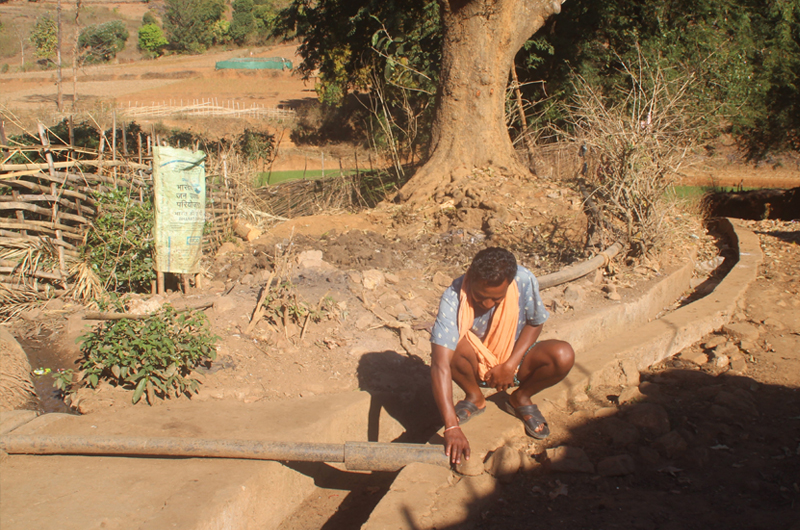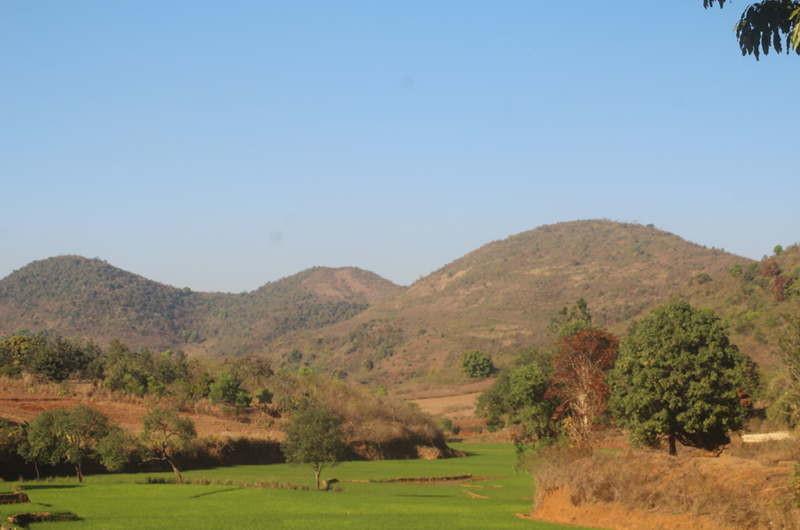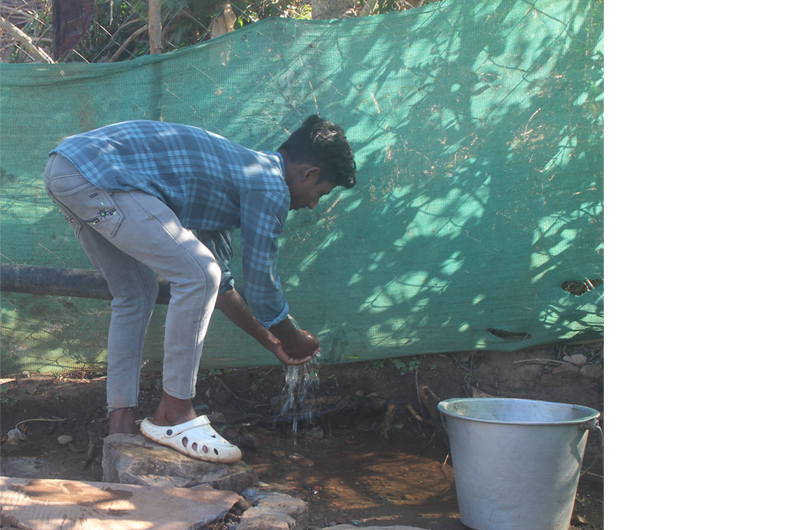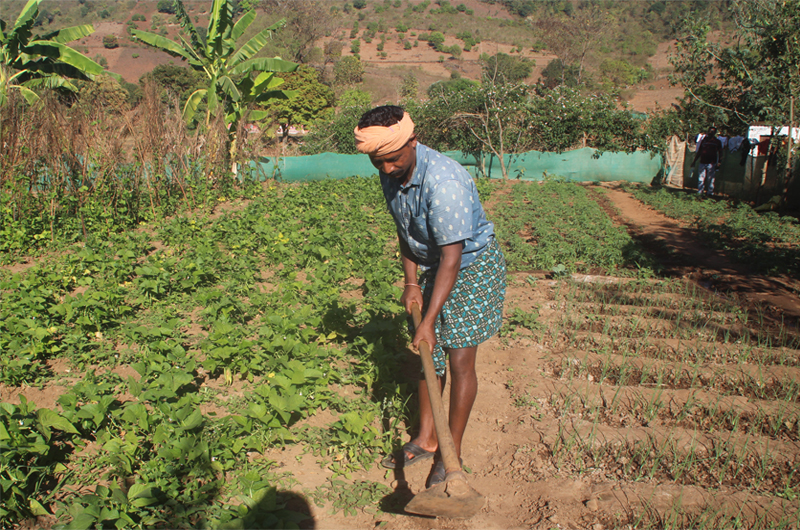Ajit Panda tells the story of an innovative farmer in a remote village in Odisha, who managed to turn his small plot of land into a thriving vegetable garden. Bhima Saunta’s efforts not only ensure food security for his family but also serve as an inspiring example of how indigenous knowledge and determination can bring about sustainable solutions in farming
In a remarkable display of perseverance and innovation, Bhima Saunta, a marginal farmer from Raniguda Village in Dasamantapur Block in Odisha’s Koraput District, has successfully developed an irrigation system for his small farm using his own resources. Bhima, who owns about a hectare of land, has ensured steady, round-the-year water supply by diverting water from two perennial hill streams through PVC pipes.

water 400 metres to the backyard.
Bhima, along with wife Sunduri and their elder son Sadan, works tirelessly on their farm throughout the year. Despite being a Class 8 student, Sadan actively contributes to the family’s agricultural efforts. In addition to cultivating paddy on their plot carved out on the slope of a hill, the family grows Suan millet and Niger (oilseed crop). They also cultivate vegetables in a half-acre backyard.
“Last year, we earned Rs 23,000 from Suan and Rs ₹13,000 from Niger,” shared Sunduri. Asked how they had used the money, she said, “Instead of spending it on unnecessary things, we decided to invest in PVC pipes to bring water to our backyard.” The innovative approach highlights the Saunta family’s determination to nourish their land.

Using Rs 30,000 from their earnings, they devised a system to channel water from two streams located on a hill north of their village. A 2-inch PVC pipe collects water from one stream and diverts it to another, while a 3-inch pipe transports water 400 meters to their backyard, crossing a valley in the process. To install the system, the family spent a week digging a two-foot-deep trench to lay the pipes underground.

Bhima’s backyard now thrives, with a variety of vegetables, including onion, chilli, garlic, tomato, potato, brinjal, beans and cabbage. Banana and fruit-bearing trees such as mango, kuler (jujube fruit), drumstick and guava are part of the mix, ensuring a sustainable source of fresh produce for their family. While some may question the financial viability of his investment, Bhima remains unfazed. “I haven’t thought about recovering the expenses. What matters is the food it will provide for us now and for my sons and grandchildren in the future,” he says. His efforts not only ensure food security for his family but also serve as an inspiring example of how indigenous knowledge and determination can bring about sustainable solutions in farming.
(The writer is a photojournalist based in Bhubaneswar.)



 from Webdoux
from Webdoux